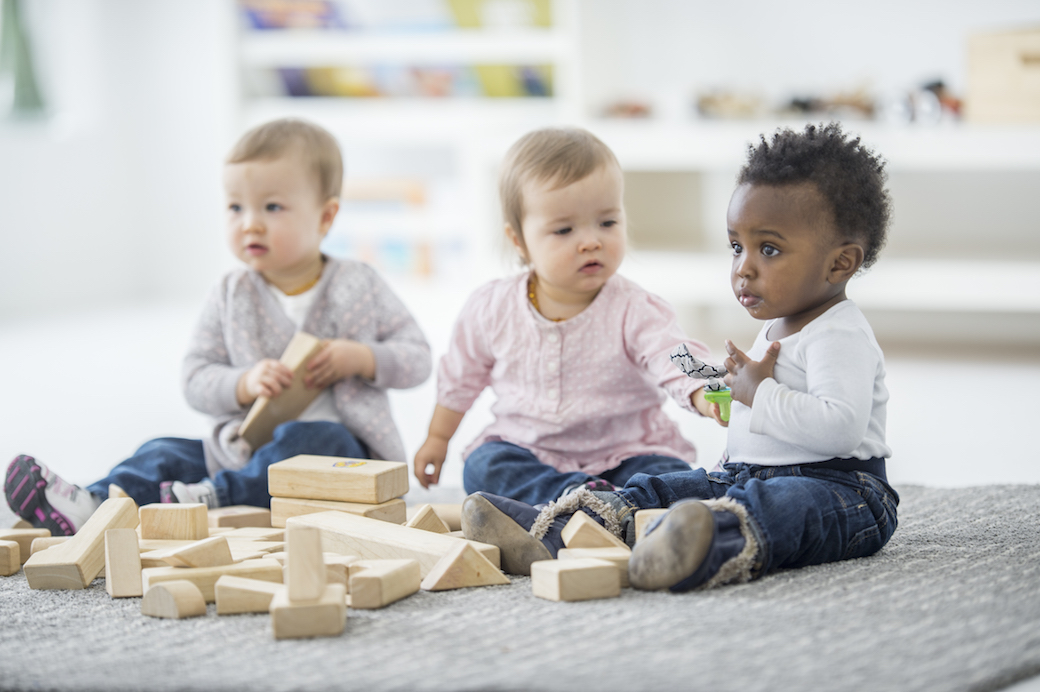Today’s world is getting busier every day. As a result, most parents, including those with little children have to leave them at childcare centers during the day. This has presented a major challenge for these parents, as well as the caregivers to make sure that the children receive the most possible care.
Kids who receive care in childcare centers regularly should have a stable and consistent environment at their respective childcare centers. The caregivers working at these centers should aim to develop, deliver, and achieve innovative childcare best practices. To achieve this, they must ensure that they provide a caring and nurturing environment for the children at these centers. This is a challenge unique to childcare centers, as home childcare has the advantage of taking place in a familiar setting. Au pairs, like those on goaupair.com, from example, work in the child’s own home, providing care in a place already known to the child. This creates less disruption for the child, which may be important if the child has ADHD or other neurodivergent tendencies.
People running childcare centers should prioritize creating a familiar and consistent relationship between caregivers and children. When doing this, it’s essential to note that the relationship that a child has with their caregiver determines how the child sees the world. Moreover, this can affect all areas of the child’s development.
What is childcare best practice?
We can define this as the provision of the very best in every aspect of a child’s care, learning, development, and wellbeing. This should happen at every available opportunity while at the childcare center.
Below we discuss the 7 best childcare practices.
Staff
Childcare centers should conduct thorough screening for the employees and volunteers working on these facilities. Moreover, anyone working on a childcare center should obtain a state license. Besides, regular training for all employees and volunteers is essential. The training should be based on age-appropriate activities, proper boundaries, and positive discipline. Both room capacity and staffing ratio capacities should be followed, according to the guidelines provided by the state.
Operations
The management should develop proper procedures for things like admissions and accommodations depending on the ages of the children, as well as their special needs. Besides, there should be proper emergency response plans, in case of crises, like a sick or injured kid, or flu containment.
Parents should provide immunization records as well as health clearance for their child for annual registration. Employees should be trained to inform parents in case of incidents in the facility. Thus should be easy with childcare management tools like Prime Childcare management Software.
Creating age-appropriate environments
Young children learn by interacting and continuously exploring their environment. Typically, this includes the emotional climate of the childcare center and the physical space. Thus, childcare centers need to provide safe and conducive spaces for active and quiet play, a safe environment for sleeping, as well as a safe environment for one-on-one interactions with individual caregivers. The environment should have toys and activities primarily chosen for individual abilities and interests, rather than group play.
Create small groups with ideal ratios
The size of the group, as well as child-adult ratios greatly determine the amount of attention and time each child can get from the caregivers. Infants require personalized care, as well as one-on-one time for routines and interactions. Now, as they grow, they can start playing independently, and handling small group activities.
Active and receptive caregiving
This helps in supporting the development of children enrolled in childcare centers. Moreover, caregivers should be active and responsive, by reading signals from each child. This should help them to know when it’s the right time to guide the child, expand their initiative, when to intervene, and when to teach.
Moreover, they should be able to identify any signs of stress in a child and take the necessary action to adjust to the needs of the child. Responsive caregiving needs careful observation, understanding of the child’s development, as well as respecting the temperament, capabilities, and interests of each child.
Individualized curriculum, observation, and programs
The curriculum at childcare centers should be based on a sound understanding of the child’s development, as well as appropriate practices. This should be done while putting into consideration the individual temperaments and needs of every child in the facility.
Typically, the curriculum should include:
- Set goals for the child’s development
- The role of families and caregivers
- Experience to be provided at the facility
- The materials used in the facility
Caregivers should have a plan for every day, personalizing activities, schedules, and materials, depending on the routines of every child, and their development stage. Discussion and observation among families and caregivers should provide a better understanding of every child, as well as grounds for documenting developmental progress for every child.
All-inclusive support services
Apart from providing an enriching and protective environment for every child, high-quality child care should serve as a support system for families. One thing with childcare is that it can help families to connect with essential services, like mental health, medical home, therapeutic interventions, as well as social services. Open and effective communication between service providers and childcare helps in creating a more accessible and holistic system for families.
